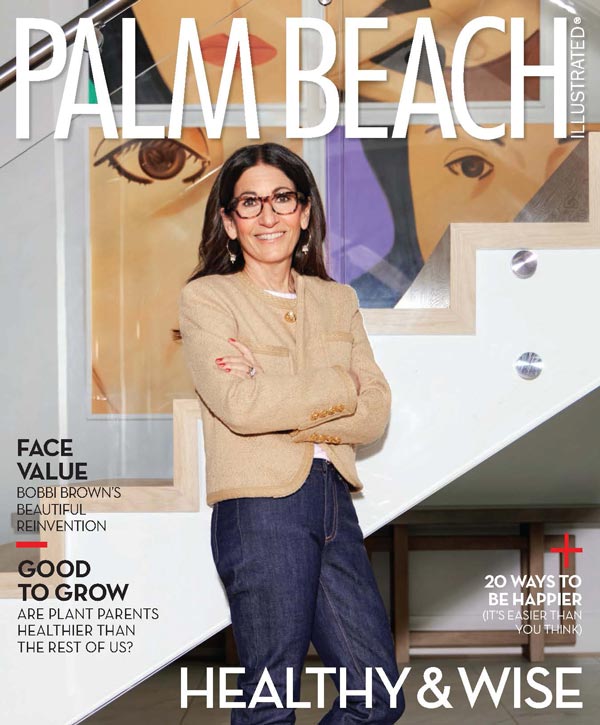On April 4, the Chamber Music Society of Palm Beach will welcome piano prodigy Ji to the Picotte Fine Arts Center at Rosarian Academy in West Palm Beach as part of the organizations’ Young Concert Artists Series. Tickets cost $30, with student admission available for $5.
Originally from South Korea, Ji has been playing the piano since the age of 5. When he was only 10 years old, he won the New York Philharmonic’s Young Artists Competition, and eventually went on to study at Juilliard. When not touring or tickling the ivories in Android commercials, the 26 year old dedicates his time to exposing younger audiences to classical music.
He recently spoke with PBI about his background, favorite composer, and passion for classical music.

PBI: What initially attracted you to the piano and why did you decide to pursue it professionally?
Ji: My mother ran a music-learning center and since our home was in the same building, I grew up using the multiple pianos it housed as toys because, for some reason, I didn’t really care for all the regular kids’ toys. Simultaneously, my mother was finishing her degree as a vocal major so I would constantly sit in during her rehearsals and would always want to sit next to her accompanist and observe. By the time I was 5 years old, I guess I started to make sense of everything that I’d heard and started to “improvise” on my own. One day, mom heard it and realized there was something there.
As for my decision to pursue it professionally, I’ve been in the business of classical music for 15 years, but I didn’t make a personal decision until about four years ago. The piano and its role in my life has given me access to feel and understand so much human emotion, which has helped me understand some of the basic things we often forget about when it comes to understanding the human condition. This has been one of the most profound realizations in my life thus far. Now, I see it as my duty to give back so much of what the music has given me and to try to share it with as many people as I can.
You’ve worked hard to bring classical music to younger audiences. Why is this mission important to you?
This directly ties in to why I decided to pursue classical music as my profession. I feel very privileged to have been exposed to an art form that poignantly and expansively captures human emotions—and in my case, does so without the use of words. My generation completely lost their exposure to this kind of beauty; we in the classical music world have perhaps made it too intellectual for the general public to understand and relate to. I, as a member of this community, feel a responsibility to re-expose the repertoire to my generation and to future generations. There lies an entire world of life-affirming sonic beauty that they may not get to know that may perhaps change their world views for the better, which will hopefully make the world a tad nicer than it is currently.
What has been your most memorable concert?
It would have to be a concert I did in Korea in the summer of 2014, where I played Schubert song transcriptions and showed the audience videos I’d made that were visual representations of what the poetry and the melodies meant to me. I decided to show the audience a video and then play the song transcription to see whether the modern visual take of a song written more than a hundred years ago could seamlessly connect when put side by side. The idea was also to pose the question: Does art in all its forms stand the test of time and the constant changes in our society? This was the first instance where I used my years of learning about different forms of art to create an experience for the audience that was immensely personal. During this performance, I was probably the most vulnerable because I was showcasing something that I wasn’t known for and didn’t have a lot of practice doing. But, it was this concert that shaped the type of artist I want to be and, more importantly, the message I want to relay with the platform I have as an artist.
Who is your favorite composer and what do you especially like about performing his/her music?
Bach is my favorite composer. The fact that he was able to write such timeless music that fully captures all aspects of human emotion while being confined to the rather strict rules set by the Lutheran Church is mind-boggling to me.
What has been the most difficult piece of music you’ve mastered thus far?
I would definitely say The Goldberg Variations because to be able to maintain the consistency and focus on the immense amount of details in any 60-plus minute work is insanely challenging. To add to that, I’ve never felt more exposed playing a piece of music as I have with the Goldbergs. Bach, the creator of what we now call counterpoint, decided to screw with every keyboard player in the world by using counterpoint in such a challenging way both musically and technically. The piece is so difficult that I feel like I can’t miss a note, otherwise it’ll completely ruin the entire piece and I am most certainly not a wrong note police.
If you could play any other instrument, which would you choose and why?
I would love to learn the voice as an instrument. I think having an extensive knowledge about the instrument everyone is born with is pretty cool
What do you enjoy most about touring?
I am a people’s person so my favorite part of touring is getting to meet the audience. Also, having the privilege to create a space where the audience and I go on a journey together and feed off of each other is a sweet gig, I’d say.
What big career goal do you still hope to achieve?
I would like to better humanity with what I do. I know that’s a far-fetched thing to say, but in all seriousness, I hope to continue to work with the purpose of teaching at least one more person about the good in humanity because this music has blessed me with the access to and knowledge of what it means to be a human being; it’s really about altruistic giving.
*This interview has been edited and condensed.








Facebook Comments